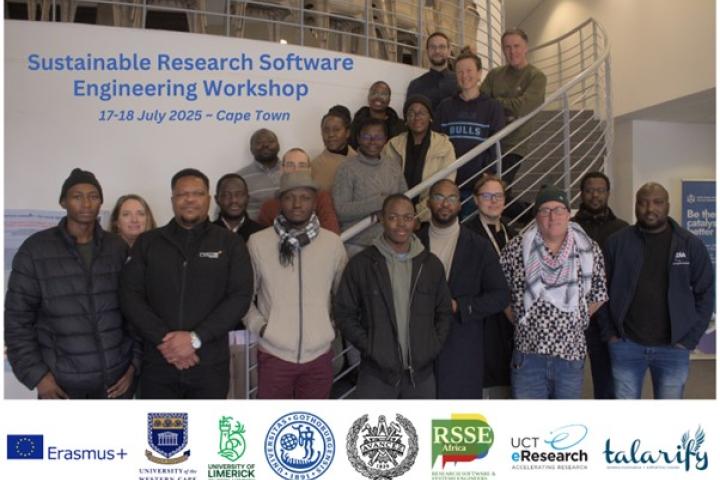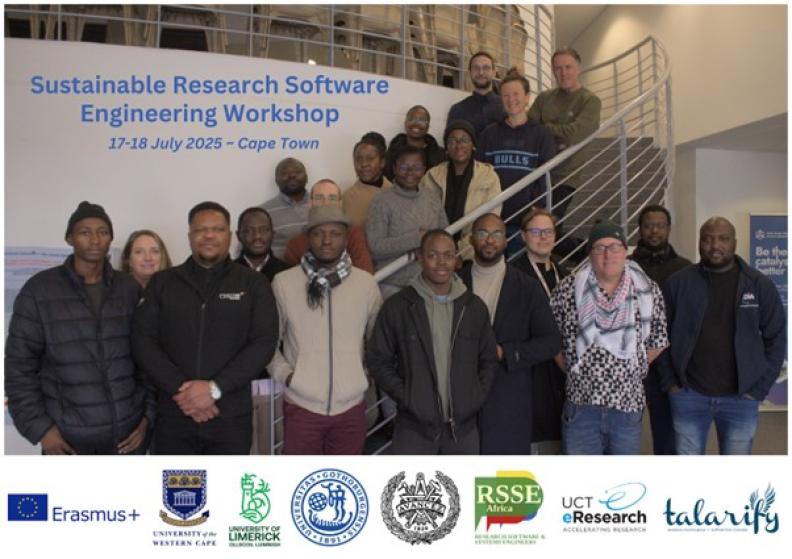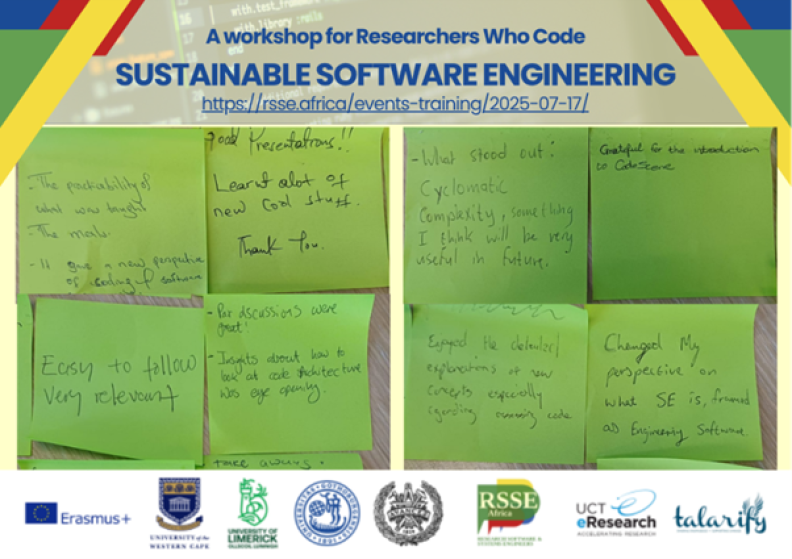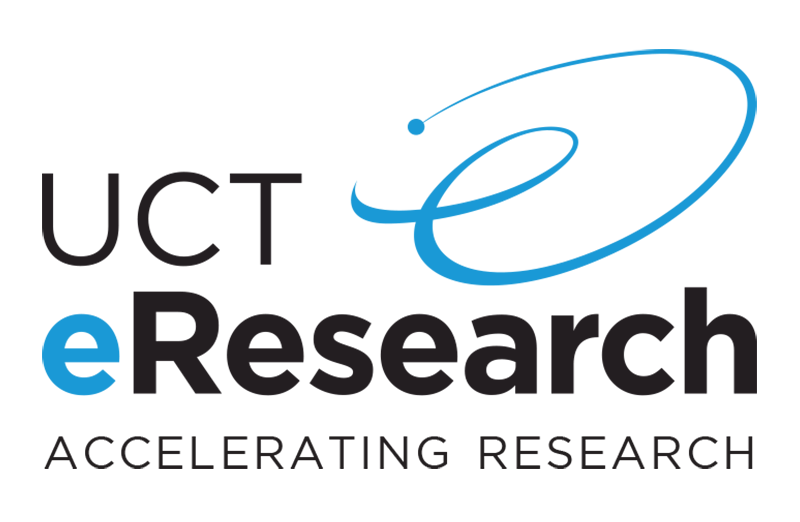Building Sustainable Research Software: Highlights from the July RSE Workshop in South Africa

Photo credit - Campbell Rae (SANBI).
Authored by: Anelda van der Walt, Peter van Heusden, Collin C. Venters, Birgit Penzenstadler.
As research becomes increasingly data-driven and computational, the need for robust and sustainable software practices is more urgent than ever. In July 2025, a group of researchers who develop research software from across South Africa gathered for a hands-on workshop on Sustainable Research Software Engineering (RSE). Held in Cape Town, this interactive event focused on building the skills, networks, and sustainable practices needed to support software as a fundamental component of modern research.
The workshop was led by Prof’s Colin C. Venter (University of Limerick and CERN) and Birgit Penzenstadler (Chalmers University of Technology, University of Gothenburg) and hosted by the South African National Bioinformatics Institute at the University of the Western Cape, the University of Cape Town (UCT) eResearch Centre, Talarify, and the Research Software and Systems Engineering Africa community (RSSE Africa) with funding through the Erasmus+ programme.
“National and international collaborations like these are critical to growing local research software engineering capabilities and communities”, says UCT eResearch Centre’s Director Professor Mattia Vaccari. “At UCT, we are working towards the launch of an institutional RSE initiative which will rely on a combination of international expertise and training, combined with in-house developed resources that are tailored to the needs of African RSEs.”

Photo credit - Campbell Rae (SANBI).
Why Research Software Engineering Matters
Research software is critical to advancing knowledge in almost every scientific field today. Yet, the people who build and maintain this software - often researchers themselves - rarely receive formal training or recognition for their efforts. This creates a risk: without proper engineering practices, research outputs may become irreproducible, fragile, or unsustainable.
In South Africa and other parts of Africa, these challenges are compounded by a shortage of training opportunities, a lack of career paths for research software engineers, and the absence of a community of practice where knowledge and experiences can be shared and contextualised solutions developed. This workshop aimed to help address these gaps by providing practical guidance, fostering collaboration, and building a stronger local RSE community.
Prof Vaccari says these skills are increasingly important to deliver on innovation visions defined in regional, national and institutional strategies such as the Science, Technology and Innovation Strategy for Africa (STISA) 2024, the Department of Science, Technology and Innovation’s Decadal Plan 2022 - 2032, and UCT’s Strategy 2030. “This new cohort of “research enablers” need better recognition, support and networking structures to fully unlock their unique and critical skills in service of research and innovation. “
Workshop Highlights
Over two intensive days, participants explored key principles of sustainable software engineering. The programme combined keynotes, live demonstrations, collaborative discussion sessions, and community-building activities.
Sessions covered:
- An ice-breaker learning about each participant’s current challenges around research software and their expectations from the workshop
- What is meant by sustainability
- Software complexity
- Software engineering design principles
- Software quality
- Software maintainability
Interactive sessions enabled participants to work on their own code bases, directly applying the theory discussed during lectures. Each session also included a group-work exercise that supported peer learning, allowing participants to learn about their partners’ code bases, challenges, and solutions.
In the final session, Colin shared some excellent resources that could help participants immediately enhance the sustainability of their research code.
Participants represented a diverse range of disciplines, including environmental science, astronomy, bioinformatics, and high-performance computing. For many, this was the first time engaging in a dedicated event focused on the intersection of research and software engineering.

Looking Ahead
The July RSE workshop was not a standalone event - it forms part of a longer-term effort to build capacity and recognition for research software engineering in South Africa and the broader African region. Organisers are already exploring the possibility of follow-up training and further opportunities for participants to stay active in the community and continue their learning journey.
Interested researchers and developers are encouraged to sign up to receive notifications about future RSSE Africa events.
As research becomes increasingly dependent on software, workshops like this play a critical role in ensuring that the people behind the code are supported, recognised, and empowered to drive innovation in Africa and beyond.
